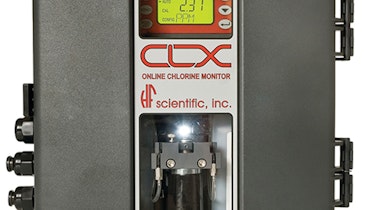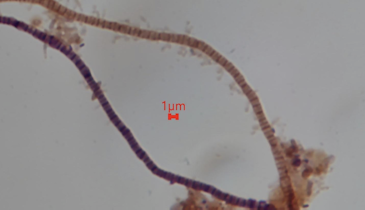Interested in Education/Training?
Get Education/Training articles, news and videos right in your inbox! Sign up now.
Education/Training + Get AlertsA Baton Rouge Wastewater Treatment worker was recently hospitalized following an incident that left him trapped in a hole at the facility.
The plant employee was rescued from the 10-foot-deep hole by emergency personnel from Baton Rouge Fire Department. It took them about 30 minutes.
Source: WAFB
'Flushable' Wipes Cause 4,000-Gallon Spill
Officials in Gwinnett County, Georgia, say “flushable” wipes, paper, grease and other products are to blame for a sewage spill of more than 4,000 gallons into Jacks Creek.
Karen Shields, Department of Water Resources spokesperson, said some products that are labeled “flushable” don’t disperse in the sewers. “As these nondisposable items collect in the sewer pipe, they can eventually cause blockages that can lead to sanitary sewer backups or overflows,” she said in a statement.
County workers raked the area and spread lime to reduce environmental damage, and signs were posted to alert residents.
Source: Gwinnett Daily Post
EPA Giving Wisconsin More Time to Comply With Phosphorus Rules
The U.S. EPA approved a request from Wisconsin to put off the enforcement of rules that limit phosphorus discharge into the state’s waterways.
Scott Laeser, water quality specialist with Clean Wisconsin, told the Milwaukee Journal Sentinel the EPA’s action has been working its way through the system for a while and isn’t likely influenced by the new administration.
The more strict phosphorus regulations took effect in 2010, but recent analyses by the state’s Department of Natural Resources show the regulations could cost between $1 and $7 billion over the next 10 years.
Source: Milwaukee Journal Sentinel
Scientists Develop Adsorbent Material Made of Orange Peels
Researchers recently found a way to remove metals and organic pollutants from wastewater using a new adsorbent material made from orange and grapefruit peels.
The food industry isn’t using the peels currently, although it produces an estimated 38.2 tons per year worldwide.
The process invented by the researchers makes it possible to change the structure of the peels using instant controlled pressure drop treatment, which gives them adsorbent properties. Then, they used a chemical treatment give the peel material more functional groups, allowing it to remove metals and pollutants.
Source: Phys.org





